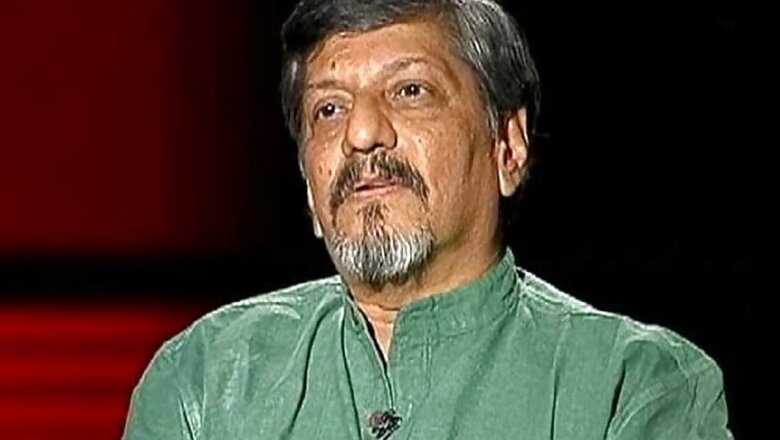
views
Play: Kusur
Director: Amol Palekar
To watch actors of a certain vintage and inclination showcase their craft across different mediums is always captivating. And this once, observing thespian Amol Palekar headline his new play which opens the month-long Bharat Rang Mahotsav at National School of Drama in Delhi (on Feb 1st) was no different. In trademark Palekar style, he had reeled in the audience imperceptibly and before you knew it, you were on the edge of your seat, involved with the proceedings of Ashok Dandvate (Palekar) in Kusur (The Mistake), a theatrical thriller. Adapted by Palekar's co-director and wife Sandhya Gokhale from Danish thriller film Den Skyldige, the play is a delightful extension to Palekar’s repertoire as a theatre actor.
It would be pertinent to point out that Palekar started his acting career with theatre back in the 60s, and later, influenced by Badal Sircar, he went on to experiment extensively with the avant-garde theatre before transitioning rather successfully as the consummate 'common man hero' in the movies. He, in fact, in the 1970s, he enjoyed a parallel run in middle-of-the-road cinema with successful family entertainers like Baton Baton Mein and Golmaal even when the Amitabh Bachchan's Angry Young Man ruled the commercial film marquee.
With Kusur, Palekar once again channels the middle-class common man. He is in top form as Ashok Dandvate, a retired Assistant Commissioner of Police who has volunteered for the drab duty of attending to emergency calls in the police control room. Preceding his entry, the stage is set with a cop of a junior rank attending to calls to give the context. Dandvate enters and starts off as a self-assured official given to do his duty diligently. And then the layers begin to peel off when he gets a call from Kaveri, a woman in distress.
Dandvate springs into action and it is through his fervent attempts to help out Kaveri that we, the audience discover his Achilles heel, the skeletons of his past. Kaveri's desperate and repeated calls surmise her as a woman trapped in a particularly risky situation with an ill-tempered husband. Palekar does not miss a beat in moving from the tough cop to a lenient gent who can’t help going out on a limb for a lady in distress. Phone conversations, hurried, hushed, elaborate and interrupted form the backbone of Kusur and it is through these that we eventually arrive at the truth along with Dandvate. Palekar, backed by actors Naresh Suri and Siddhesh Dhuri hold your attention right through.
Thrillers in the theatrical format are challenging and it is no ordinary achievement that Palekar and Gokhale as co-directors achieve it without adding fancy bells and whistles that define certain flashy productions. In fact, it is the simplicity, the minimalist approach to stage design that makes the play very effective. The sound design in Kusur, so integral to its narrative is very competent. The incessant phone rings and answering of the calls, the switch between the actor speaking into the phone on stage and the reply from the voice on the other side are juggled smoothly without a hitch.
Adapting a foreign language film especially to retain the essence of the source material and reboot it into a different medium is hard work. And to adapt it into a new local milieu and make it more accessible to different audiences around the world. Gokhale interprets and defines her characters well on that front customising dialogues and conversations relevant to suit the Indian context. Never verbose, always maintaining that fine balance of explaining enough and yet not giving it all away, Gokhale’s adaptation is skillful.
There are comedic elements –phone calls or trivial reasons –lawbreakers pretending to be victims and so on, which keep the audience curious and engaged. A particularly subtle aspect is how gender and religious stereotyping is slipped seamlessly into the narrative. In the end, what at first appears as a simple predictable story leads us into a different, unsettling conclusion- quite a feat. The masterful storytelling and performance raise Kusur from being just an intriguing thriller to the heightened levels of a Greek tragedy.
And like all good works of art, it leaves you wanting for more.
Rating: 3.5/5
Follow @News18Lifestyle for more




















Comments
0 comment